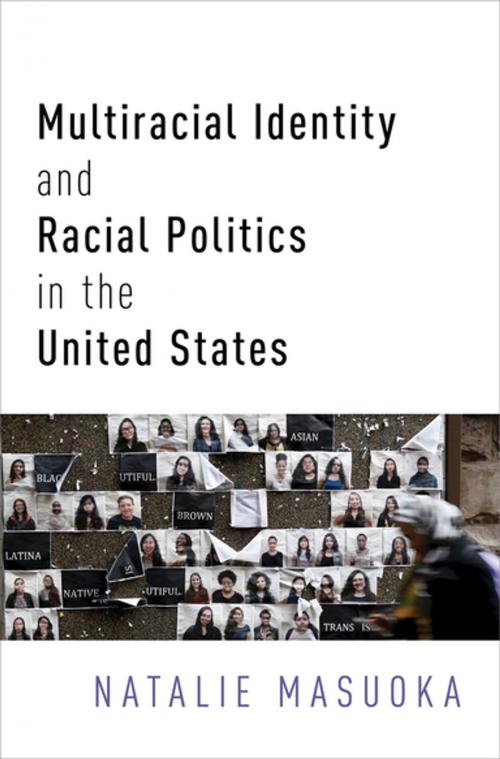Multiracial Identity and Racial Politics in the United States
Nonfiction, Social & Cultural Studies, Social Science, Discrimination & Race Relations, Cultural Studies, African-American Studies, Political Science| Author: | Natalie Masuoka | ISBN: | 9780190657499 |
| Publisher: | Oxford University Press | Publication: | August 30, 2017 |
| Imprint: | Oxford University Press | Language: | English |
| Author: | Natalie Masuoka |
| ISBN: | 9780190657499 |
| Publisher: | Oxford University Press |
| Publication: | August 30, 2017 |
| Imprint: | Oxford University Press |
| Language: | English |
While pundits point to multiracial Americans as new evidence of a harmonious ethnic melting pot, in reality mixed race peoples have long existed in the United States. Rather than characterize multiracial Americans as a "new" population, this book argues that instead we should view them as individuals who reflect a new culture of racial identification. Today, identities such as "biracial" or "swirlies" are evoked alongside those more established racial categories of white, black Asian and Latino. What is significant about multiracial identities is that they communicate an alternative viewpoint about race: that a person's preferred self-identification should be used to define a person's race. Yet this definition of race is a distinct contrast to historic norms which has defined race as a category assigned to a person based on certain social rules which emphasized things like phenotype, being "one-drop" of African blood or heritage. In Multiracial Identity and Racial Politics in the United States, Natalie Masuoka catalogues how this cultural shift from assigning race to perceiving race as a product of personal identification came about by tracing events over the course of the twentieth century. Masuoka uses a variety of sources including in-depth interviews, public opinion surveys and census data to understand how certain individuals embrace the agency of self-identification and choose to assert multiracial identities. At the same time, the book shows that the meaning and consequences of multiracial identification can only be understood when contrasted against those who identify as white, black Asian or Latino. An included case study on President Barack Obama also shows how multiracial identity narratives can be strategically used to reduce anti-black bias among voters. Therefore, rather than looking at multiracial Americans as a harbinger of dramatic change for American race relations, this Multiracial Identity and Racial Politics in the United States shows that narratives promoting multiracial identities are in direct dialogue with, rather than in replacement of, the longstanding racial order.
While pundits point to multiracial Americans as new evidence of a harmonious ethnic melting pot, in reality mixed race peoples have long existed in the United States. Rather than characterize multiracial Americans as a "new" population, this book argues that instead we should view them as individuals who reflect a new culture of racial identification. Today, identities such as "biracial" or "swirlies" are evoked alongside those more established racial categories of white, black Asian and Latino. What is significant about multiracial identities is that they communicate an alternative viewpoint about race: that a person's preferred self-identification should be used to define a person's race. Yet this definition of race is a distinct contrast to historic norms which has defined race as a category assigned to a person based on certain social rules which emphasized things like phenotype, being "one-drop" of African blood or heritage. In Multiracial Identity and Racial Politics in the United States, Natalie Masuoka catalogues how this cultural shift from assigning race to perceiving race as a product of personal identification came about by tracing events over the course of the twentieth century. Masuoka uses a variety of sources including in-depth interviews, public opinion surveys and census data to understand how certain individuals embrace the agency of self-identification and choose to assert multiracial identities. At the same time, the book shows that the meaning and consequences of multiracial identification can only be understood when contrasted against those who identify as white, black Asian or Latino. An included case study on President Barack Obama also shows how multiracial identity narratives can be strategically used to reduce anti-black bias among voters. Therefore, rather than looking at multiracial Americans as a harbinger of dramatic change for American race relations, this Multiracial Identity and Racial Politics in the United States shows that narratives promoting multiracial identities are in direct dialogue with, rather than in replacement of, the longstanding racial order.















